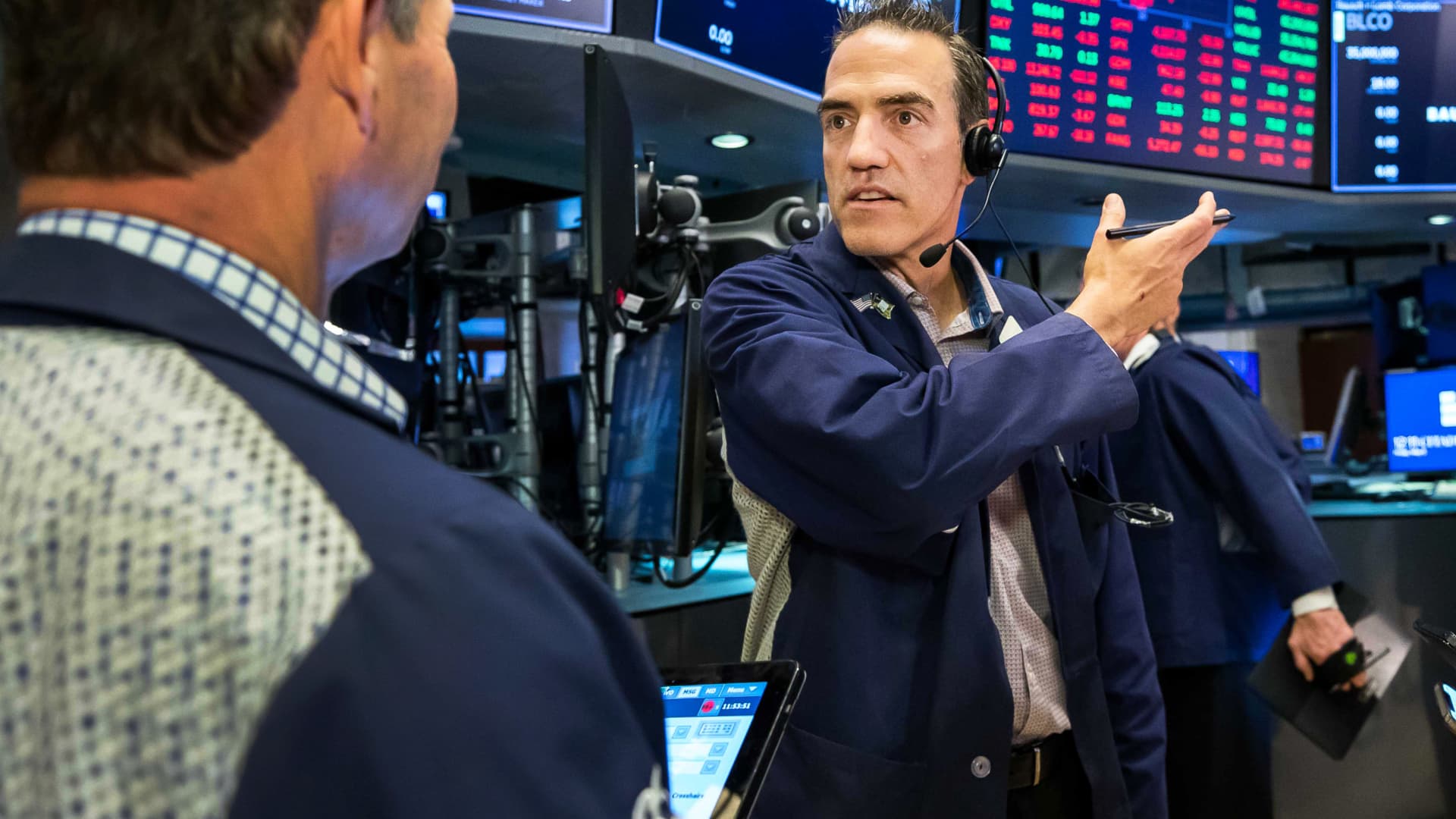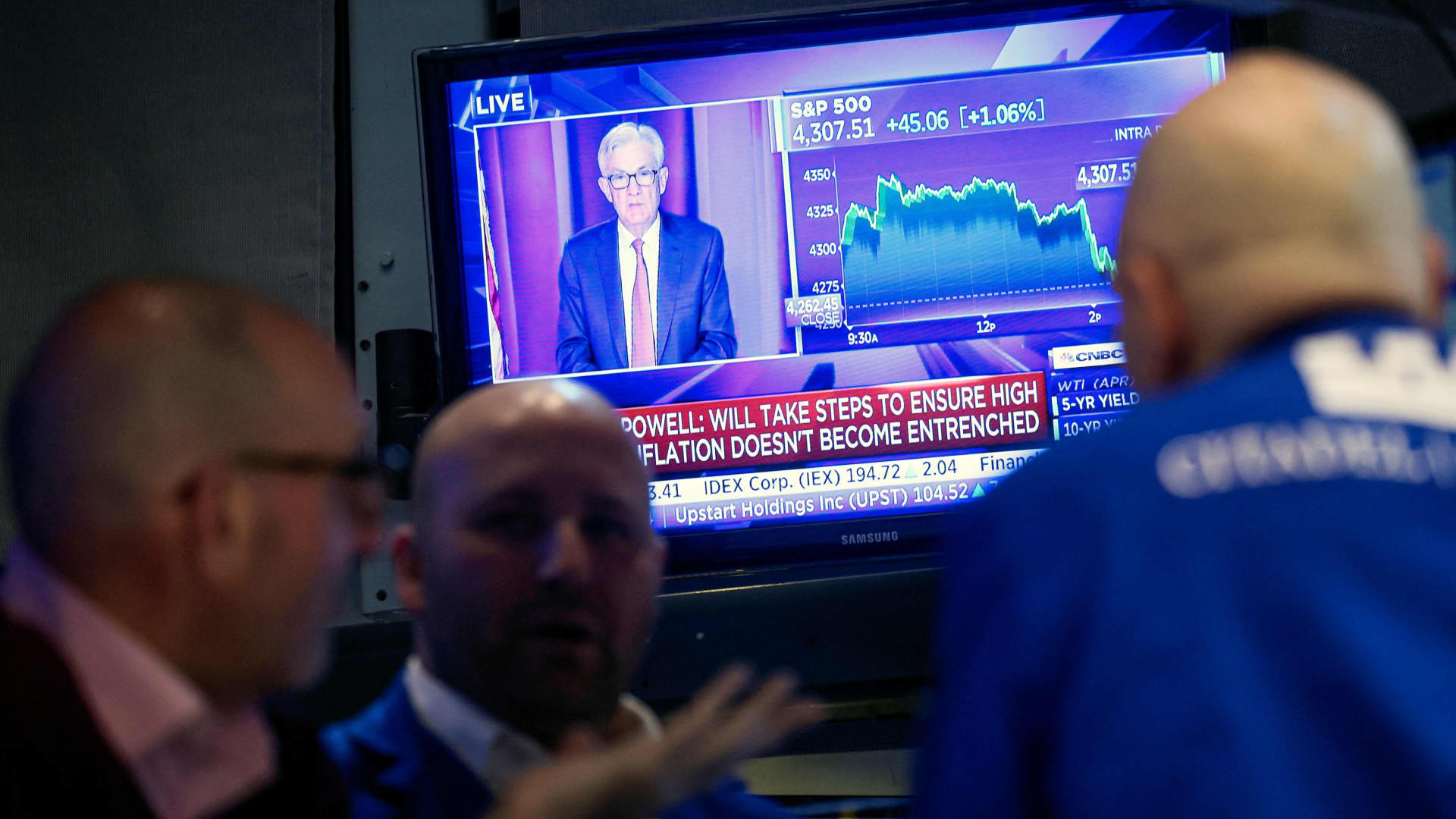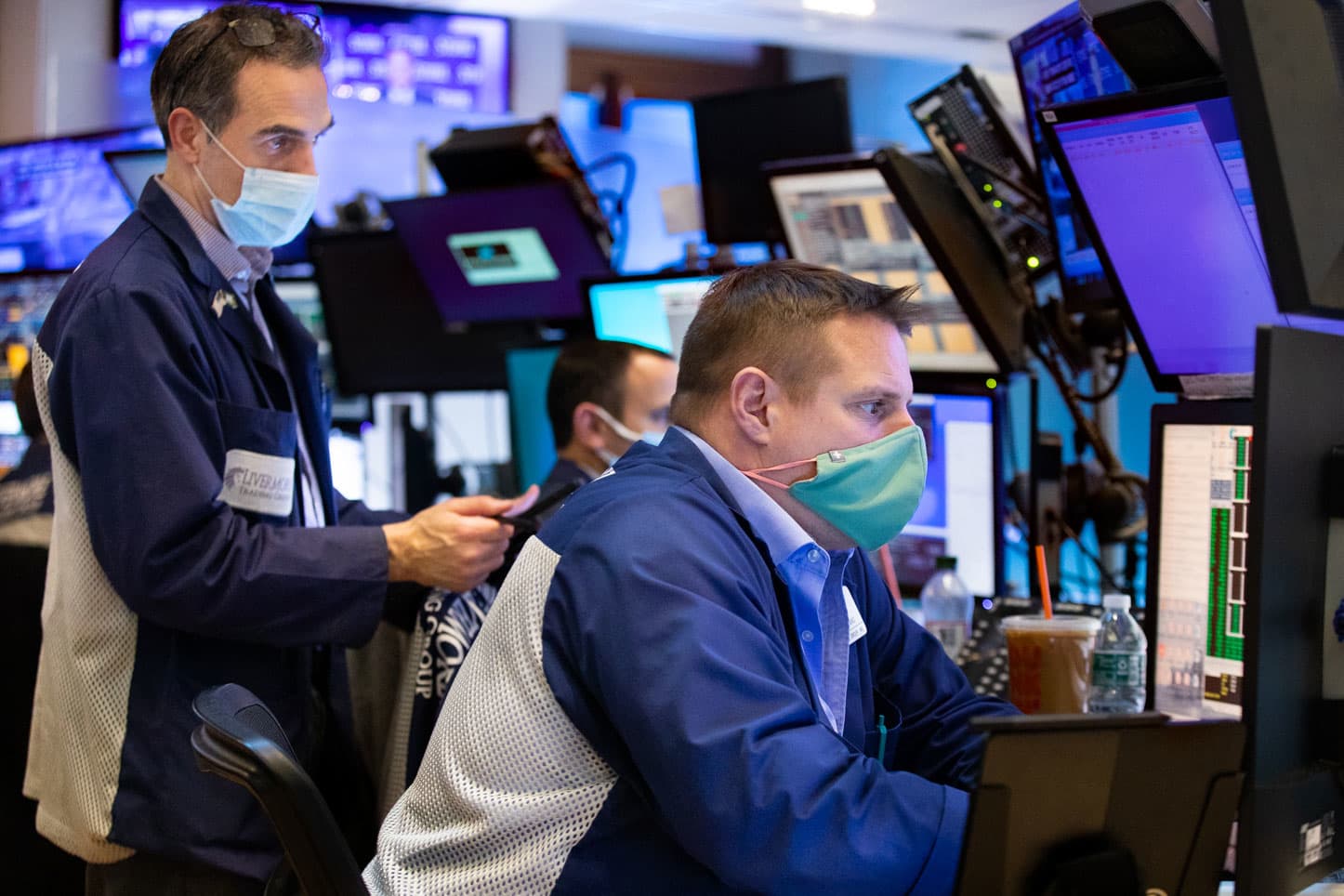S&P 500 falls on Monday as it struggles to rebound from a 6-week slide
Major averages still posted steep losses for the week and are undergoing an intense sell-off as the Fed attempts to tamp down inflation.

Stocks fell Monday as the market struggled to rebound from a relentless sell-off that's punished tech stocks and pushed the S&P 500 to the brink of a bear market.
The Dow Jones Industrial Average dropped 141 points, or 0.4%. The S&P 500 fell 0.6% after the benchmark nearly fell into a bear market last week before a Friday rebound. The Nasdaq Composite was down 1%.
"We continue to be transitioning through this interest rate driven repricing," said Bill Northey, senior investment director at U.S. Bank Wealth Management. "So as the U.S. Treasury yield curve has continued to move higher in anticipation of both higher realized inflation and Federal Reserve policy adjustment, we've seen a consistent and broad adjustment to asset valuations that has occurred consistent with those rising inflation concerns."
After a long spate of selling, markets rebounded on Friday, with the Dow rising 466.36 points and the S&P 500 climbing 2.39%. The Nasdaq Composite jumped 3.82% and posted its strongest one-day gain since November 2020.
But major averages still posted steep losses for the week and are undergoing an intense sell-off as the Federal Reserve attempts to tamp down inflation with aggressive rate hikes. The Dow's seven-week losing streak is its worst since 2001. The S&P 500 just posted its first six-week losing streak since June 2011.
The S&P 500 sits 16% off its record high, while the Nasdaq Composite is down more than 27%.
Those losses continued on Monday as major tech names declined. Shares of Apple, which fell into a bear market at one point last week, fell 0.8%. Microsoft's stock price dropped 1%. Shares of Google-parent Alphabet declined 1%.
Some analysts believe those declines may soon point to an attractive entry point for the broader market index, based on a long-term perspective.
"The S&P 500 is quickly approaching a level that, historically, has indicated that future growth concerns are priced in," Citi analyst Scott Chronert wrote in a note.
Some notable outperformers on Monday included healthcare. Shares of Eli Lilly surged 5% following approval on Friday of its diabetes called Mounjaro by the U.S. Food and Drug Administration. Pfizer's stock price jumped 1.2%, AbbVie's stock price was up 1.2%.
Energy stocks also made gains, climbing higher on the back of rising oil prices. Exxon Mobil's stock price climbed 1.8%, Chevron's surged 2% and ConocoPhillips' rose 1.3%.
Elsewhere, shares of Spirit Airlines jumped 10% after JetBlue announced a tender offer to acquire the airline for $30 a share. Carvana's stock price rose 8% after the used car company issued expectations of significant core earnings in 2023, and outlined a plan to cut costs.
Stock picks and investing trends from CNBC Pro:
Despite the relentless selling, some investors say there are good buying opportunities at current levels.
"I'm not calling the bottom here, but there's some opportunity here to dollar cost average," said Sylvia Jablonski, CEO and chief investment officer at Defiance ETFs, told CNBC. "If you're sitting on a bunch of cash, you're locking in losses because of inflation. Investing in equities or asset classes that you believe in... it is the lesser evil. The selling fatigue will wane, the market will reset. It's unlikely the Dow and the S&P are going to be in correction territory six months to a year from now."
Retail earnings season kicks off this week with several big-box retailers set to report results for the first quarter, including Walmart, Target and Home Depot. Elsewhere, Deere is also on deck, along with a handful of technology companies.
Investors will also have their eye on retail sales data this week, which could give them insight into how retailers are managing inflation, which remains near 40-year highs.

 Tfoso
Tfoso 































